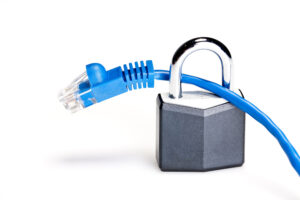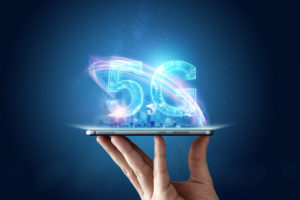Tracing Broadband Evolution: From Dial-Up to Fibre

The internet connects us in ways we once could only imagine. Broadband connections has changed a lot. It started with a single dial-up line and now we have fast fibre broadband connections. This brings the world to our fingertips.
Curious about how we’ve landed at this modern marvel and what the future holds? Let’s dive into the fascinating journey of broadband evolution.
Dial-Up: The Dawn of Connectivity
It wasn’t all that long ago when dial-up dominated our digital lives. If you remember the famous connection sounds—a mix of beeps and static—you know the challenge of sharing one phone line.
Users used this line for both voice calls and web surfing. Dial-up offered limited speed, often topping at 56 Kbps. While it felt like a revelation at the time, by today’s standards, it’s nearly prehistoric.
Dial-up taught us a lot about patience and taught broadband pioneers about the dire need for speed. The slow connection offered insights into user demands, paving the way for innovations beyond flip pages.
Broadband Birth: DSL and Cable
Then came the big break with Digital Subscriber Line (DSL) and cable modems. Unlike dial-up, DSL used existing telephone lines without monopolising them, delivering faster speeds directly to users’ residential areas. Cable, meanwhile, leveraged existing TV lines, opening doors to speeds previously unimaginable.
With both DSL and cable, homes can keep their internet connection. They can also receive phone calls and watch TV.
This was a game-changer. Suddenly, activities like downloading songs, streaming videos, and online gaming became possible for home users. This started a new era of internet apps and user engagement.
Fibre Optics: Ushering in the Future
Fibre-broadband marked another leap forward. Fibre optic cables use thin strands of glass or plastic. They send data as pulses of light. This method is much faster and more reliable than older technologies.
This makes fiber the best choice for data-heavy tasks. This includes streaming Ultra HD content on many devices and smooth online gaming. It’s fast, efficient, and capable of transporting vast amounts of data almost instantaneously.
For the UK audience, the transition to fibre wasn’t just about speed. It also meant reliability and consistency in their daily online activities. Today, services like those from Broadband Freedom let tech-savvy users customize their internet packages. This helps ensure their connection matches their lifestyle.
The Wireless Revolution
As broadband technology roared to life, the concurrent development of wireless technology changed everything. Wi-Fi enabled devices connect without tangled cables.
This improves flexibility and creates a smooth internet experience at home and on the go. This was especially attractive to families and people with many devices. Wi-Fi can easily connect laptops, smartphones, tablets, and smart TVs at the same time.
The growth of mobile broadband has made internet access possible through cellular networks. This has expanded connectivity beyond homes and offices. Now, we can carry the world in our pockets.
The Role of Broadband in Today’s Connected World
Today, broadband isn’t just a nice-to-have; it’s a necessity. A fast and stable internet connection is important. It helps you stream your favorite shows.
It also allows you to play intense games. Plus, it makes video calling loved ones easier.
Companies like Broadband Freedom help improve internet access. They offer flexible contracts and high-speed connections. These options tailor themselves to meet specific needs. This is especially important for budget-conscious customers in the UK.
What’s Next? The Future of Broadband
With fibre optic technology currently reigning supreme, what does the future hold for broadband? Anticipated advancements suggest even faster speeds and more efficient usage, with potential improvements such as:
- Next-Generation Fibre: Set to be faster and even more reliable, with broader geographic reach.
- 5G and Beyond: The growth of mobile broadband offers super-fast wireless connections. This could make home internet and mobile services more similar.
- Satellite Internet: Companies exploring constellations of satellites promise internet access to even the most remote areas, potentially providing greater global coverage than ever before.
Beyond technological advancements, user-centric services will likely gain priority. Consumers want services that give them more control and flexibility. This idea is similar to Broadband Freedom. In this model, the user sets the terms and conditions, not the provider.
Why Understanding Broadband History Matters
It’s important for internet users today to know how broadband has changed. This is especially true for tech-savvy individuals and families in the UK. This understanding helps us see why internet services are strong and reliable today. It also gets us ready for the future.
Earlier innovations influencing today’s internet landscape emphasise the importance of continuous improvement and adaptation to consumer needs. Flexible terms and contracts help households budget better. They can still enjoy great internet experiences that meet real needs. This is what Broadband Freedom represents.
Embracing Internet Freedom
In summary, broadband technology has changed a lot. It has moved from dial-up to fast fibre optic connections. The goal is to make internet access easier and faster for everyone.
With this understanding, UK residents can make smart choices about service providers. They can choose broadband services that fit their lifestyle and budget. This idea is central to what Broadband Freedom offers.
Providers like Broadband Freedom offer services that let you take charge of your connections. This way, you can meet your digital needs without heavy commitments or surprise fees. This perspective is crucial in a world where connectivity remains a core facet of daily life.
As you think about your connection choice, remember the past. Look forward to the future. Enjoy the broadband freedom you deserve.


